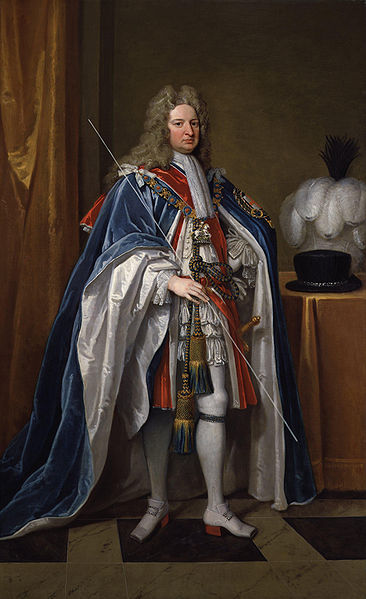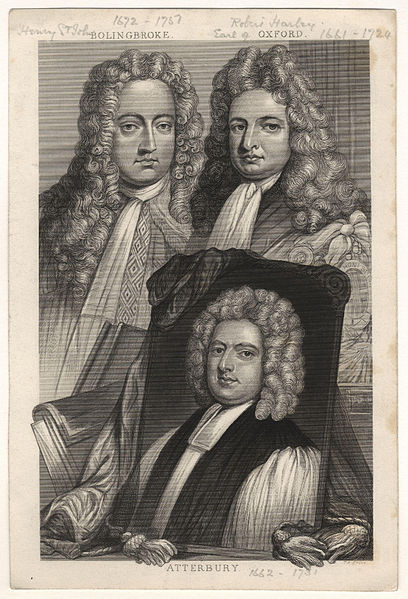No Peace Without Spain was a popular British political slogan of the early eighteenth century. It referred to the ongoing War of the Spanish Succession (1701–1714) in which Britain was a leading participant. It implied that no peace treaty could be agreed with Britain's principal enemy Louis XIV of France that allowed Philip, the French candidate, to retain the Spanish crown. The term became a rallying cry for opposition to the Tory government of Robert Harley, Earl of Oxford and the terms of the Treaty of Utrecht.
The Earl of Nottingham is credited with coining the slogan.
John Churchill, 1st Duke of Marlborough was closely associated with Britain's war effort until his dismissal in 1711. He then joined with Whig politicians to oppose the Peace of Utrecht.
Victory at Villaviciosa in December 1710 settled the war in favour of Philip V.
Robert Harley, the leader of the Tory government that negotiated the Treaty of Utrecht. His concessions over Spain were fiercely attacked by the opposition.
Robert Harley, 1st Earl of Oxford and Earl Mortimer
Robert Harley, 1st Earl of Oxford and Earl Mortimer, KG PC FRS was an English statesman and peer of the late Stuart and early Georgian periods. He began his career as a Whig, before defecting to a new Tory ministry. He was raised to the peerage of Great Britain as an earl in 1711. Between 1711 and 1714 he served as Lord High Treasurer, effectively Queen Anne's chief minister. He has been called a prime minister, although it is generally accepted that the de facto first minister to be a prime minister was Robert Walpole in 1721.
Portrait by Godfrey Kneller, 1714
Robert Harley by Jonathan Richardson, c. 1710.
Oxford (right), together with his friend and ally Henry St John, 1st Viscount Bolingbroke and a portrait of Francis Atterbury. Engraving after a painting by Sir Godfrey Kneller.
Robert Harley pictured carrying the white staff of the Lord High Treasurer. Portrait by Jonathan Richardson.







